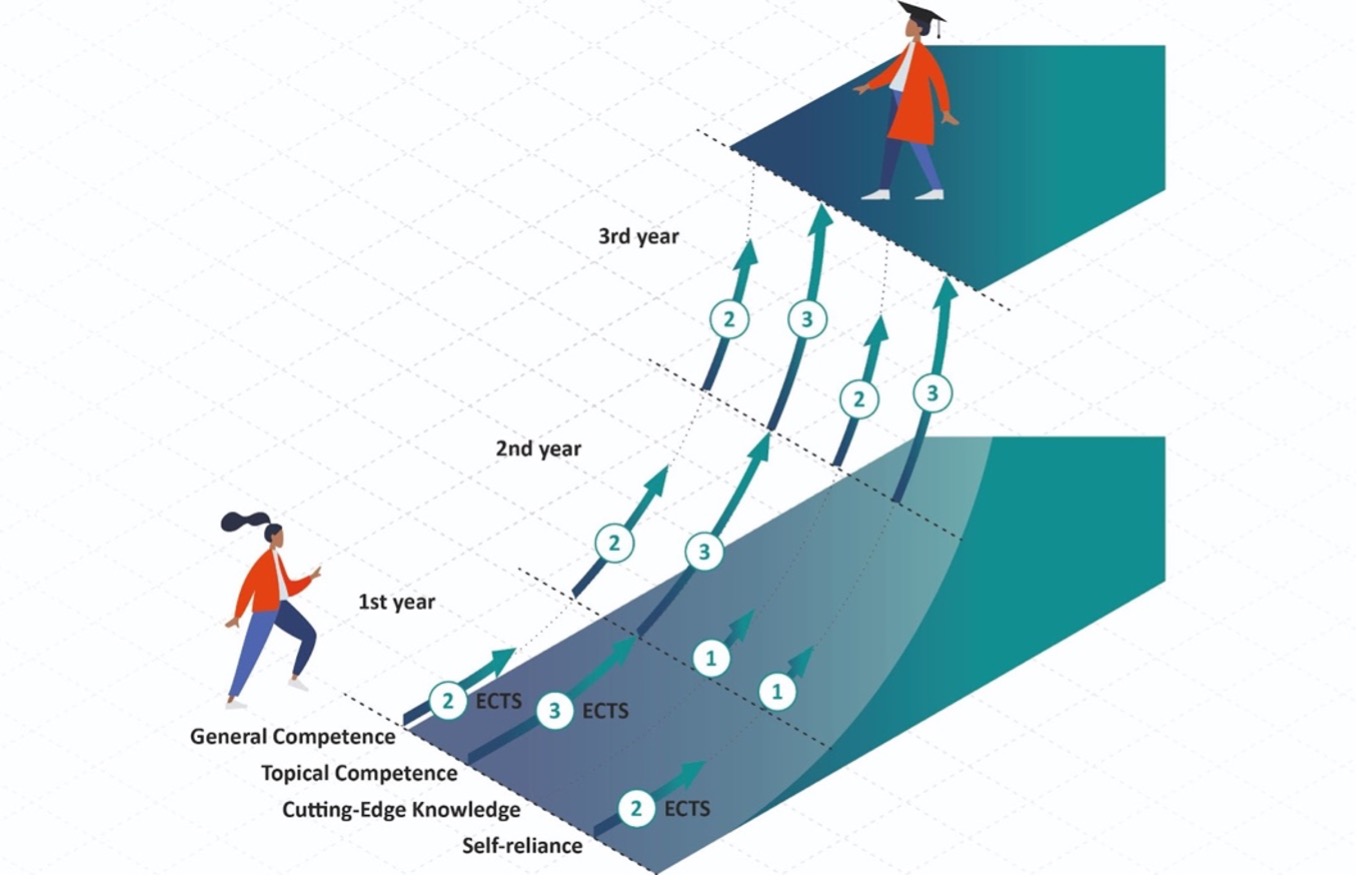Supervision concept
Supervision within KCDS is organized as follows:
MathSEE tandem principle: Each KCDS Fellow has at least one advisor from the mathematical sciences, and at least one from the SEE disciplines.
Thesis Advisory Committee (TAC): The KCDS tandem supervisors and a third person (who is not directly involved in the doctoral project) constitute the TAC. The TAC has three formal meetings during the three years of the doctoral phase, creating three "milestones" where the doctoral researcher will receive structured feedback. These three TAC meetings are mandatory, but it is encouraged that the doctoral researcher communicates with both supervisors on a regular basis.
Status of the supervisors: KCDS strives to make the commitment of scientists in earlier career stages (who don’t have examiner’s authorization in a doctoral examination yet) for the graduate school visible. Therefore, the role of the doctoral thesis supervisor is independent from the KCDS Supervisor role. The doctoral thesis supervisor can be one of the KCDS Supervisors (congruence), but can also be a different person. If the latter case arises, a close collaboration between doctoral thesis supervisors and KCDS Supervisors is beneficial.
Course and Training Program
By flexible customization of courses and offers from KIT Center MathSEE and participating faculties and (KIT) institutions, KIT Graduate School Computational and Data Science offers doctoral researchers the possibility to enrich their KIT experience. A high qualification standard is ensured by an ECTS-based certificate system. Check out KCDS recommended course offers.
Overall, students are expected to cover up to 6 ECTS per year (up to 18 ECTS over the 3-year KCDS program), which they select, supported by their supervisors, from a wide range of modules. Sounds good? Learn here how to join KCDS.
General competence (3 CP) encompasses modules on interdisciplinary communication and cooperation, scientific writing and presentation techniques, good scientific practice, law, ethics, self-evaluation, and research data management. Transferable skills workshops from KHYS, and offers from ARRTI, ZAK, NaWiK and BIB will be part of the seminar and lecture portfolio of KCDS.
Topical competence (6 CP) includes initial positioning with the supervisors, and from there compiling a tailored course program. The courses will especially be chosen from the curriculum of the planned MSc program Computational and Data Science. Good Scientific practice and Research Data Management will be core courses that are offered regularly.
Courses for acquiring cutting-edge knowledge (3 CP). KCDS will keep doctoral researchers at pace with the rapid scientific progress in the field by topical summer schools with international lecturers. New formats for online participation of guest lecturers will be considered. The summer schools will be organized by the school participants, with KCDS financial and organizational support.
Courses on Self-reliance (6 CP). In addition to the summer school, the doctoral researchers will independently organize one retreat and one hackathon/datathon in their research duration for scientific exchange. Active participation in at least one of such events per year will be mandatory and credited. This will help the participants in developing organizational and leadership skills, and it will be a good opportunity to practice presentation skills and get peer feedback for their project.
Networking and Internationalization. KCDS supports doctoral researchers in developing professional networks, both at KIT and internationally. It encourages doctoral researchers to participate in one international conference or summer school per year, and provides support for funding applications at KHYS or other sources. KCDS also actively supports a 1-3 month exchange visit to an international research facility, both by providing overview on funding sources not covered by KHYS, and by the already existing, excellent contacts of KCDS members to international institutions. KCDS will also consider offering an internal guest program for doctoral researchers in another group to foster interdisciplinarity.
Career advancement. KCDS will provide informative events to prepare its doctoral researchers for their professional career. In addition to the regular meetings with their scientific supervisors, guests from external research institutions, from industry and from KIT startup companies will be invited for career talks. Furthermore, excursions to industry companies and research institutions will be organized according to the KCDS members’ interests and perspectives.


